A Protest in Berkeley Escalated Into Antisemitism
Students have every right to protest Israel’s actions in Gaza. But doing so at the home of a Jewish professor crosses a line.
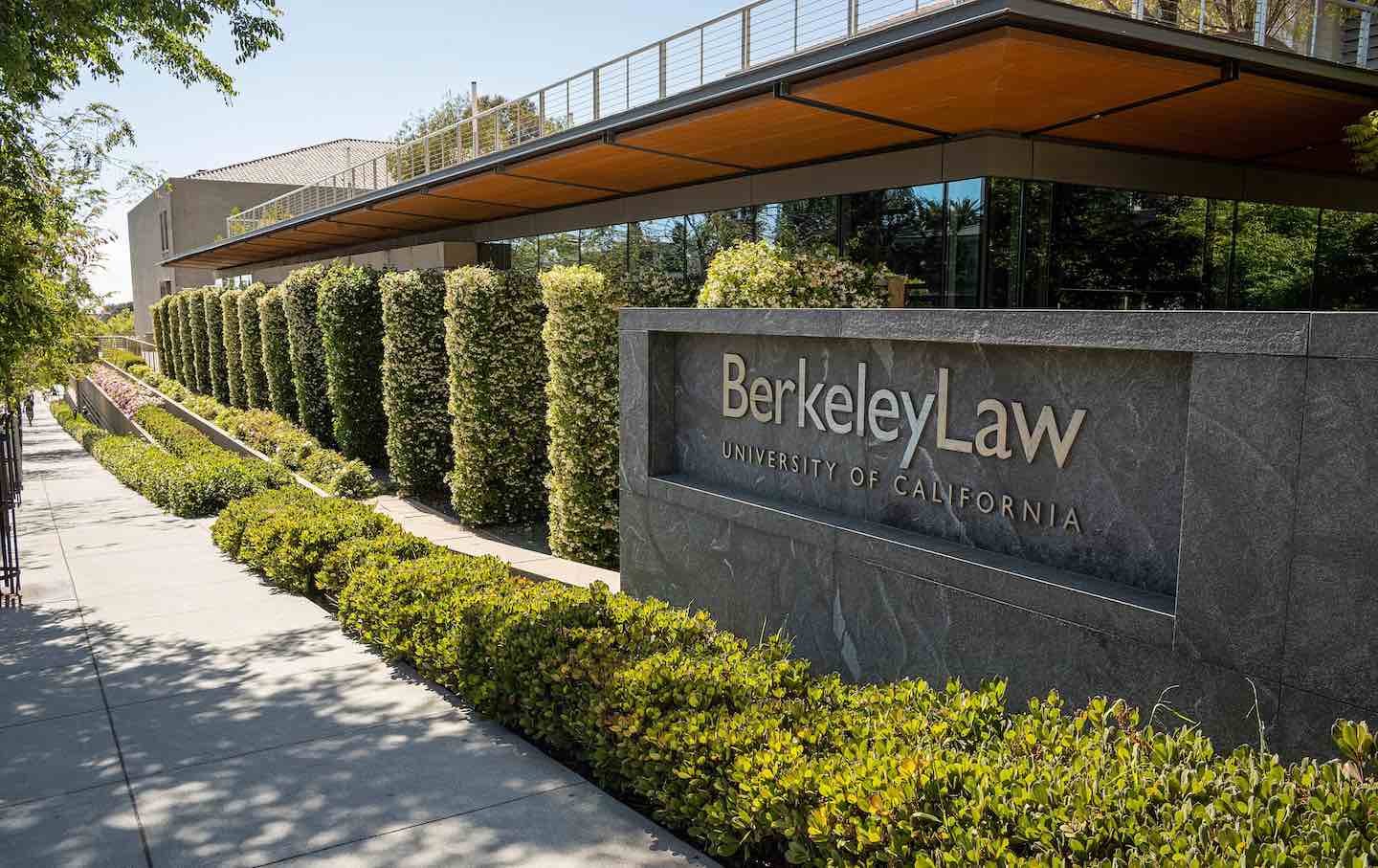
The Berkeley School of Law on the University of California, Berkeley, campus.
(David Paul Morris / Bloomberg)University of California, Berkeley, Law School Dean Erwin Chemerinsky has a storied record as a constitutional law scholar and an attorney willing to take on some of the hardest and most unpopular causes. In January 2002, he filed the first lawsuit on behalf of Guantánamo detainees, just days after the detention center opened. A few years later, he represented the family of Rachel Corrie—the young American woman who joined the International Solidarity Movement in support of Palestinian rights and was killed by Israeli Defense Forces in the Gaza Strip in 2003, shortly before her 24th birthday—in their lawsuit against Caterpillar, whose equipment was being used to demolish Palestinians’ houses in the Occupied Territories.
I first met Chemerinsky six or seven years ago, when we were both writing weekly columns for The Sacramento Bee on the Trump administration and its escalating assaults on the rule of law. We were also both, as a result of our writings, receiving death threats and other hate mail, on a fairly regular basis, from outraged denizens of the MAGA movement.
Recently, however, Chemerinsky and his wife, Catherine Fisk, also a UC Berkeley law professor, have become the target of an extraordinarily vitriolic and antisemitic campaign from some pro-Palestinian activists on campus and at the law school. Their offense? Not that Chemerinsky is pro-Netanyahu or that he’s spoken out in defense of the IDF’s actions on Gaza—he isn’t and he hasn’t, and in fact he told me this week that he abhors what Israel is doing in Gaza and opposes the blockade of food into the territory. But he has made statements in the past saying that he supports Israel’s right to exist. Activists have also called him out for not signing on to a Boycott, Divestment, and Sanctions demand, even though this is entirely outside his bailiwick: As dean of the law school, he has zero institutional say as to whether UC Berkeley, or the UC system more generally, divests from Israel.
Chemerinsky and Fisk have long opened up their home and their garden to host law school students at an annual dinner. This year, because the university was still playing catch-up after the pandemic years made such gatherings impossible, they agreed to host three dinners in quick succession for multiple years of students.
In early April, as the dinners were nearing, activists with a group called Berkeley Law for Palestine put up posters at the law school that showed a vicious caricature of Chemerinsky holding up a bloodied knife and fork. Chemerinsky also interpreted the image as showing his lips limned with blood. The caption, all caps, read, “NO DINNER WITH ZIONIST CHEM WHILE GAZA STARVES!” It would not have been out of place in Der Stürmer during the heyday of the Third Reich.
Chemerinsky has made a conscious effort to not make public statements on Israel and Gaza over the past six months, preferring, he told me, to focus instead on his areas of specialty, which mainly concern US constitutional law. Given this, it’s hard not to come to the conclusion that he was targeted with this ancient blood-libel imagery not because of his position on Israel, which he has kept largely private, but because he happened to be the highest-profile Jew in the neighborhood.
Days later, the activists disrupted the dinner by bringing in their own microphone and amplifier, and attempting to seize control of the gathering. When Chemerinsky, who is in his 70s, asked them to stop, to respect the fact that they were guests in his house, and to leave if they weren’t willing to join the dinner, they refused. When Fisk tried to grab the microphone away from the woman who was speaking, the student refused to cede the microphone. As the two women tussled for control, Chemerinsky continued to plead for the protesters to desist.
Finally, the group of 10 or so students left—but not before accusing Fisk of assault. Subsequently, they have called for the university to fire both Chemerinsky and Fisk and demanded that the police open an investigation. In the days since the events, each has been bombarded with grotesque hate mail. Fisk, Chemerinsky told me, has received messages like “you should die, fucking cunt.” Protesters have surrounded their house, banging drums and trying to disrupt their gatherings.
Anti-war protest is an American tradition, and Israel’s actions in Gaza, in the six months following Hamas’s murderous assault on October 7, are so brutal, the civilian death toll and the destruction of infrastructure so unrelenting, the food blockade so cruel, that they certainly deserve strong condemnation. But I fail to see how any of the events in Berkeley do one iota of good for Palestinians. I can’t for the life of me see how lobbing toxic, antisemitic messages and cartoons the way of a celebrated, and progressive, legal scholar advances the cause of the left or focuses attention on the awful acts carried out by the IDF in Gaza.
If this sort of action is deemed legitimate by progressives simply by virtue of the fact that Chemerinsky is Jewish and believes in the legitimacy of the state of Israel, then they are quite simply jumping the shark into the raw antisemitism of past mobs whipped up into an anti-Jewish furor in Tsarist Russia or Nazi Germany.
Chemerinsky’s worldview—his belief in Israel’s right to exist combined with a long history of respect for human rights and his disapproval of hard-right Israeli government policies and the behavior of settlers in the Occupied Territories—is similar to that of say, Albert Einstein or Isaiah Berlin, both of whom, I suspect, would draw the same ire from groups such as Berkeley Law for Palestine today.
It’s almost unfathomable for me that any self-described university progressives would glory in the vilification of any other ethnic or religious group. It’s certainly impossible to imagine the sort of ghastly caricature that was put up on the Berkeley law school posters being tolerated or even celebrated by members of the progressive community if it were aimed at a people other than Jews—or as the poster put it, “Zionists.” In fact, I’m fairly certain progressives, both on campus and in the world beyond, would demand the expulsion of any student who behaved in such a disgraceful manner against any other minority group.
“I think there’s been a change in discourse in this country,” Chemerinsky told me. “Trump, in ridiculing people—it legitimizes ugly discourse. I always assumed it was from the right. Now, for the left to be engaging in this ugly, hateful discourse, it’s just very frightening.”
Disobey authoritarians, support The Nation
Over the past year you’ve read Nation writers like Elie Mystal, Kaveh Akbar, John Nichols, Joan Walsh, Bryce Covert, Dave Zirin, Jeet Heer, Michael T. Klare, Katha Pollitt, Amy Littlefield, Gregg Gonsalves, and Sasha Abramsky take on the Trump family’s corruption, set the record straight about Robert F. Kennedy Jr.’s catastrophic Make America Healthy Again movement, survey the fallout and human cost of the DOGE wrecking ball, anticipate the Supreme Court’s dangerous antidemocratic rulings, and amplify successful tactics of resistance on the streets and in Congress.
We publish these stories because when members of our communities are being abducted, household debt is climbing, and AI data centers are causing water and electricity shortages, we have a duty as journalists to do all we can to inform the public.
In 2026, our aim is to do more than ever before—but we need your support to make that happen.
Through December 31, a generous donor will match all donations up to $75,000. That means that your contribution will be doubled, dollar for dollar. If we hit the full match, we’ll be starting 2026 with $150,000 to invest in the stories that impact real people’s lives—the kinds of stories that billionaire-owned, corporate-backed outlets aren’t covering.
With your support, our team will publish major stories that the president and his allies won’t want you to read. We’ll cover the emerging military-tech industrial complex and matters of war, peace, and surveillance, as well as the affordability crisis, hunger, housing, healthcare, the environment, attacks on reproductive rights, and much more. At the same time, we’ll imagine alternatives to Trumpian rule and uplift efforts to create a better world, here and now.
While your gift has twice the impact, I’m asking you to support The Nation with a donation today. You’ll empower the journalists, editors, and fact-checkers best equipped to hold this authoritarian administration to account.
I hope you won’t miss this moment—donate to The Nation today.
Onward,
Katrina vanden Heuvel
Editor and publisher, The Nation
More from The Nation

San Diego’s Clergy Offer Solace to Immigrants—and a Shield Against ICE San Diego’s Clergy Offer Solace to Immigrants—and a Shield Against ICE
In no other US city has the faith community mobilized at such a large scale to defend immigrants against the federal government.
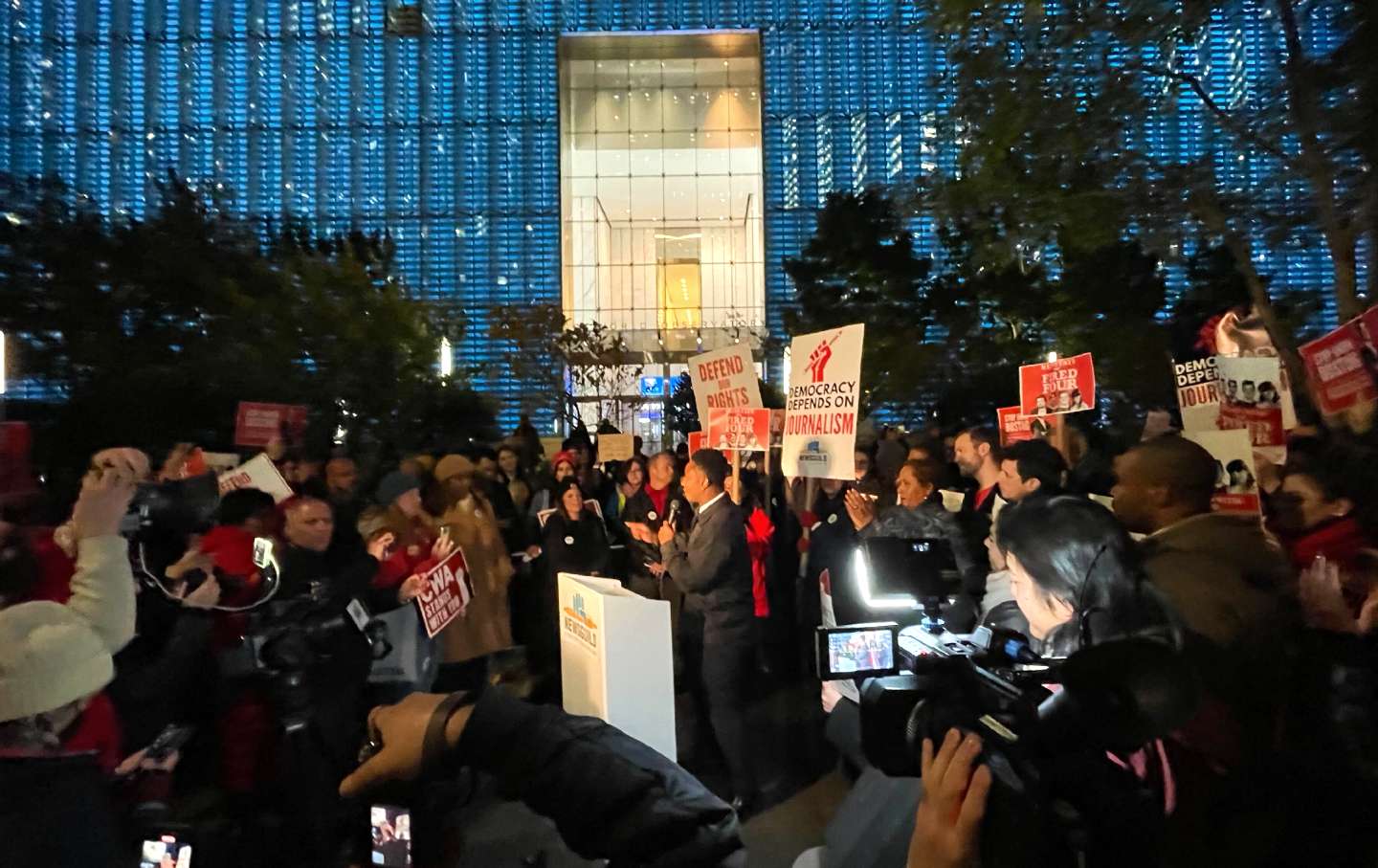
If Condé Nast Can Illegally Fire Me, No Union Worker Is Safe If Condé Nast Can Illegally Fire Me, No Union Worker Is Safe
The Trump administration is making employers think they can ignore their legal obligations and trample on the rights of workers.
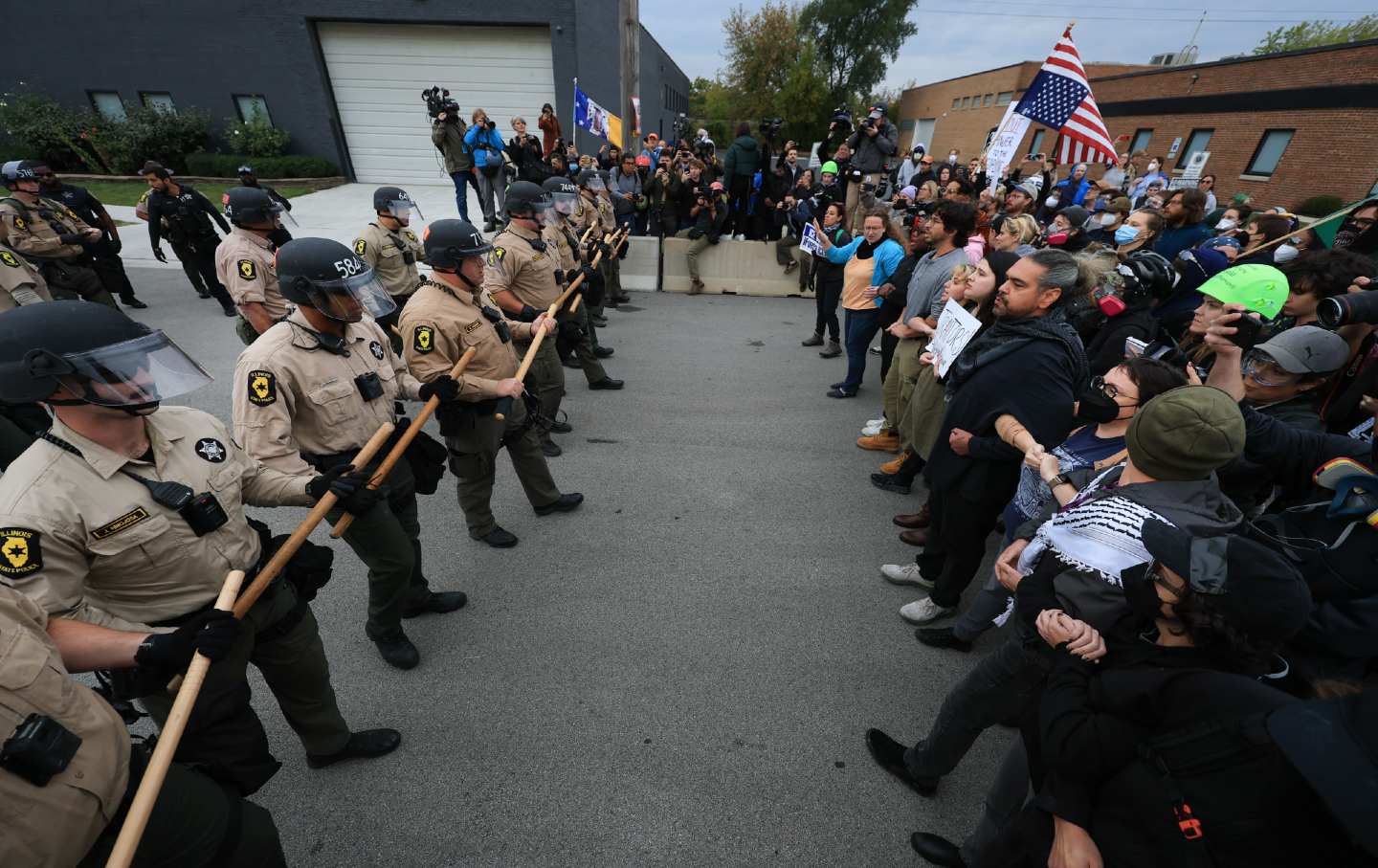
The Counteroffensive Against Operation Midway Blitz The Counteroffensive Against Operation Midway Blitz
How Chicago residents and protesters banded together against the Trump administration's immigration shock troops.
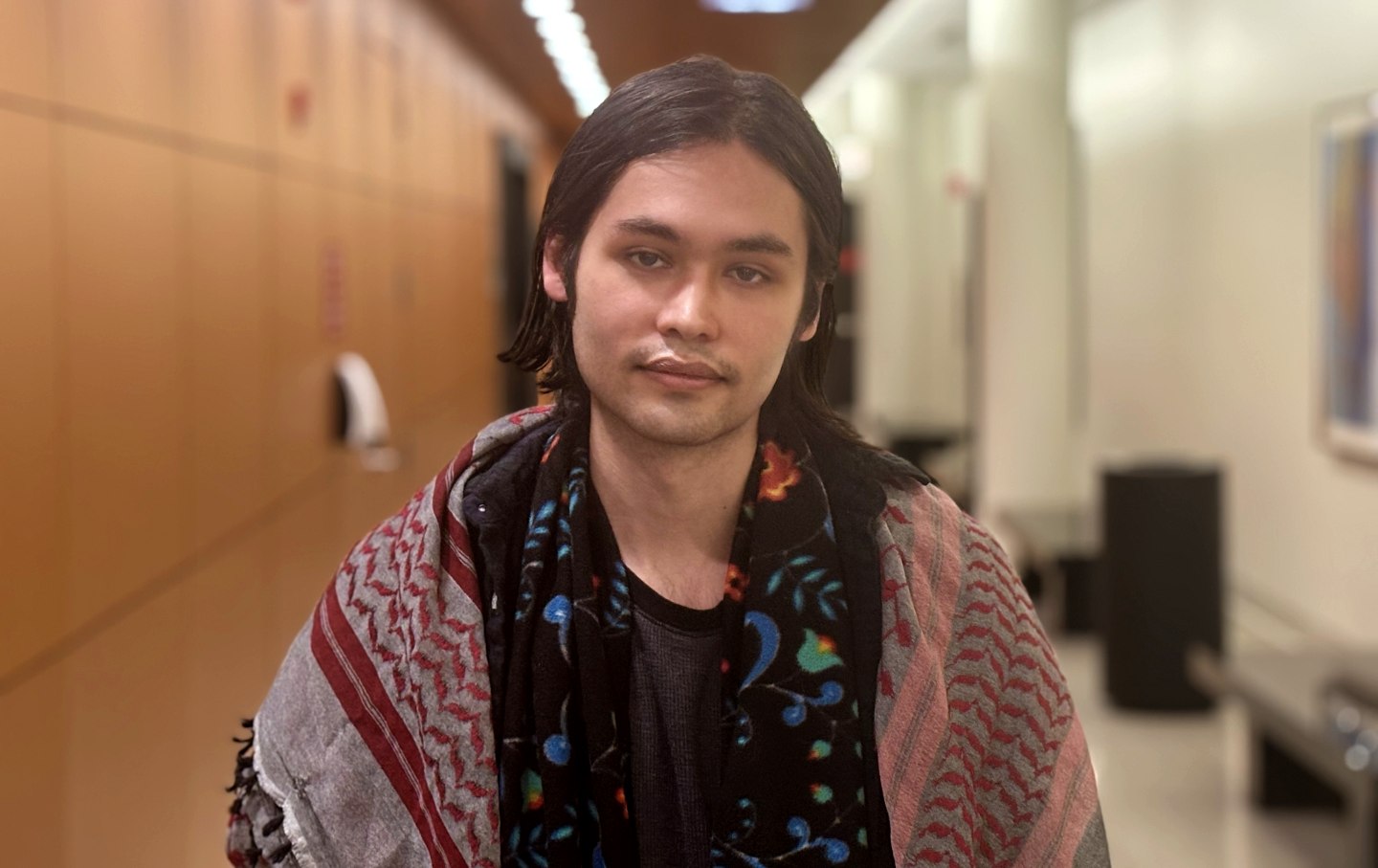
In an Unusual Twist, the Prosecution of a Gaza Protester Puts Israel on Trial In an Unusual Twist, the Prosecution of a Gaza Protester Puts Israel on Trial
An activist argued that genocide in Gaza necessitated disrupting business as usual. The City of Chicago argued in defense of Israel—and against civil disobedience.

The Left Must Build Its Infrastructure The Left Must Build Its Infrastructure
We need to look not at what it will take to win the next election, but what it’ll take to win the next 10 elections.
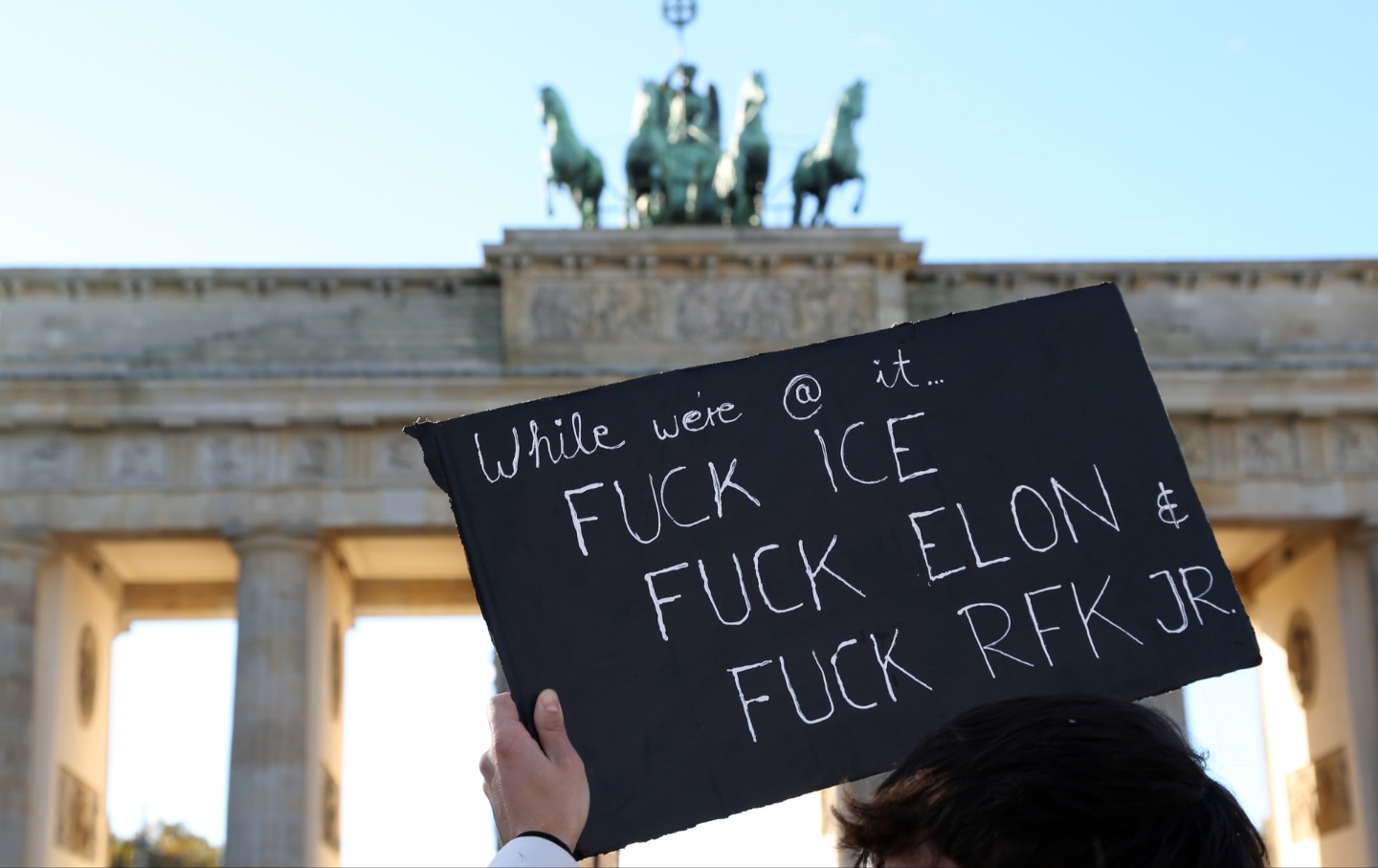
Public Health Was a Place for Warriors Once. It Needs to Be Again. Public Health Was a Place for Warriors Once. It Needs to Be Again.
It's time for us to reconnect with the radical, system-changing spirit that was once at the heart of our field.


